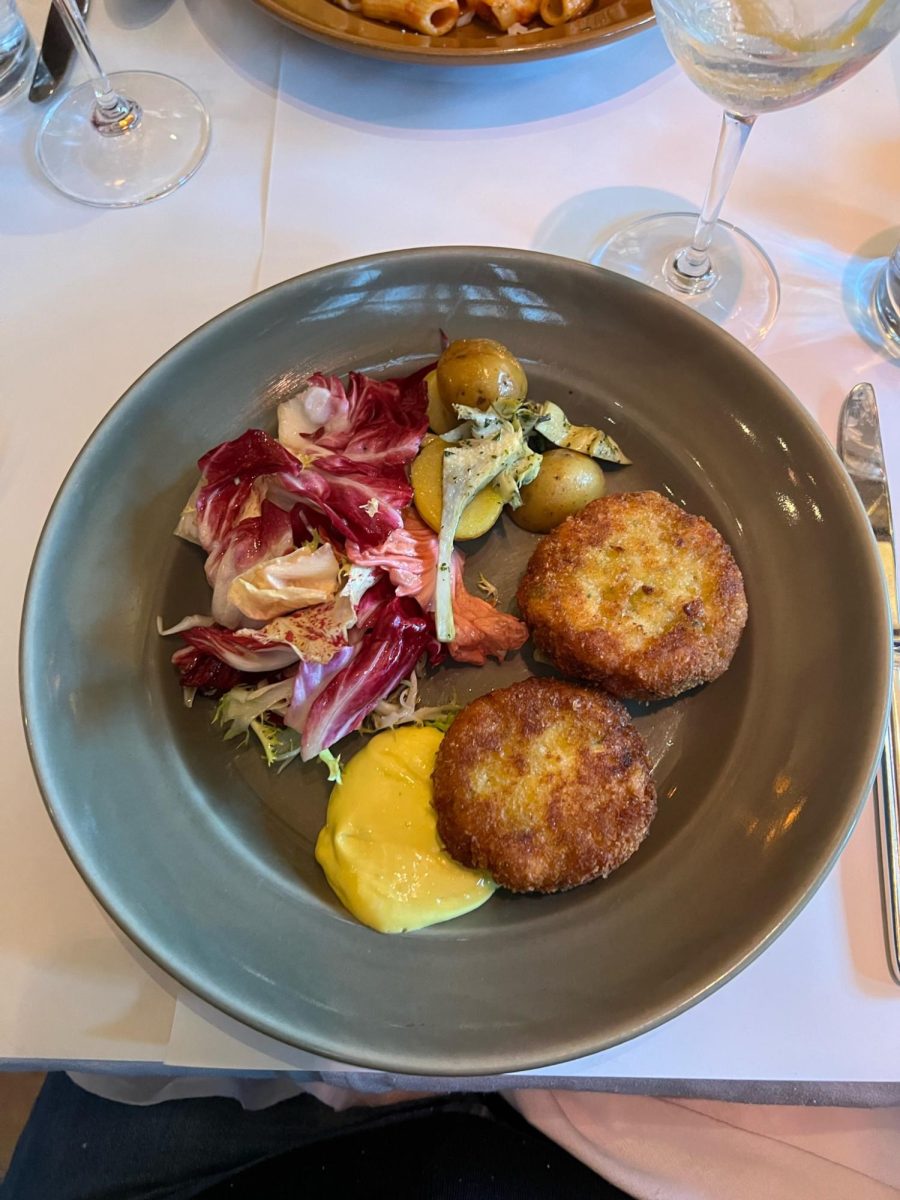By Ava ’25
I want to start off by giving a shoutout to my amazing Food Justice Class for teaching me about Alice Waters and her mission. I was fortunate to be able to go to her cafe, Chez Panisse, in Northern California (she also has a restaurant in Los Angeles at the Hammer Museum called Lulu if you want to try her food locally). I want to share my experience at Chez Panisse with you and give you a glimpse of who Waters is and what she is doing to change the food industry in a remarkable way.
As soon as you walk through the door of Chez Panisse, you enter chef Waters’ beautiful organic world. The pioneer of farm-to-table cooking, Waters changed the food and restaurant industry substantially. While studying abroad in France, she discovered slow cooking and eating local, fresh produce. She decided to bring this revolutionary idea to the United States and opened up a restaurant in Berkeley, California, in the ‘70s called Chez Panisse (named after a character in French filmmaker Marcel Pagnol’s films). Posters of these films can be seen on the walls of the restaurant. Designed in a gorgeous California craftsman style, walking in feels as though you have been immersed into nature. With dark wood panelings and large trees surrounding the building, the ambience is so peaceful and refreshing.
The food reflects the rejuvenating qualities of the atmosphere. There are two different parts of Chez Panisse: the course menu restaurant and the cafe. I ate at the cafe, and one of the special parts about all of the menus is that the dishes rotate seasonally, depending on what produce is grown at the time. All of the crops and meat products are sourced from nearby ethical farmers. The restaurant has an emphasis on using heirloom produce and making sure that the farmers are treating the land, animals and farmworkers kindly and naturally.
The first dish that I had was baked goat cheese and baby garden lettuces. It tastes so fresh and has a tart and citrusy dressing. The goat cheese is creamy with a golden, crispy outer layer. Waters is known for this classic dish, and the cheese complements the lettuces perfectly. The other salad that I tried was the beet salad. This salad is colorful with bright yellows, purples and greens and the plating is lovely. The beets are smooth and sweet and just melt in your mouth.
For my entrée, I had the rigatoni all’amatriciana pasta made with pancetta pork, tomatoes, pecorino cheese and hot peppers. The taste is comforting, as you don’t feel heavy after eating it like you do with many other pastas. All of the flavors are balanced and blend together to create a full-flavored yet light dish that will become your new favorite. I also tried the goat cheese pudding, which is fluffy and airy almost like if a grilled cheese was a delicate roll. Asparagus and chanterelle mushrooms are paired with it to create a layered savor.
Finally, I had three desserts: the apple-sour cherry galette, the olive oil cake and the Meyer lemon huckleberry posset. My favorite is the posset because of its addictiveness. Its silky lemon cream is similar to that of the filling of a fruit tart: refreshing and perfect. The apple galette feels homemade with the baked apples and crispy crust and is delicious. The olive oil cake is buttery and soft. Also, I love the kumquats that are on top of it.
Her farm-to-table restaurants are not all that she is doing though. She has created the Edible Schoolyard Project, an organization that makes school gardens and has kitchen classes to teach local students about the food system, community surrounding it and the importance of putting nutritious and natural foods in their bodies. Waters greatly influenced the restaurant world and inspired so many other chefs to continue this slow cooking movement. Her food is scrumptious and the progress that she is making to create a healthier world is beautiful.






